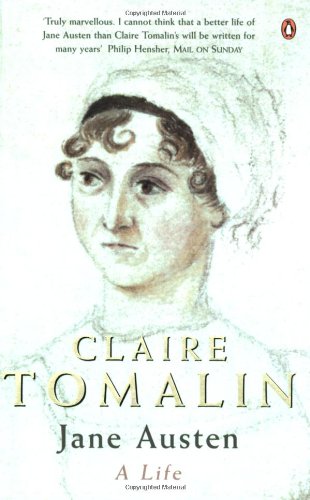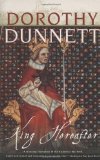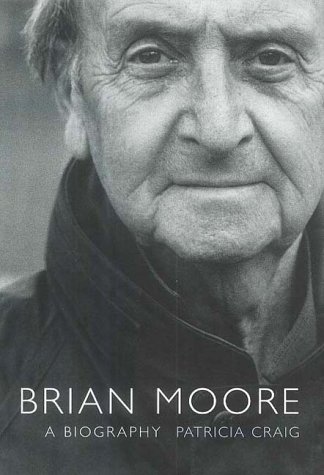
SELECTED
PROSE
by Karen Macleod
'THE CHRISTMAS GIFT'
My acquaintances told me it was inevitable my son would marry a German girl. My friends told me that, in so far as he would marry at all, it would be a German, most likely, since he studied German at university and lives in Germany. He is an interpreter.
This Christmas is the first chance I have had to see my granddaughter, Laura, who is three. I have had invitations to go to Germany, of course, from my son. � Rosa wants to meet you, � he wrote last year. If she wanted to meet me so much, she would have had the grace to come to Scotland before the wedding, if not for it.
I am, however, not one to bear grudges and the three of them arrived two days ago, on Saturday, to spend Christmas here. They do not appear to have a proper car; they have one of those funny, foreign vans which (Edward says) are so good for holidaying in. I thought that Edward negotiated it up my long drive in reverse very well.
They let Laura jump out first, to break the ice, presumably, just before the van reached the curve at the top of the drive beside the hedge. What can I say about Laura? She is perfect, quite perfect. In fact, my friends agree with me that they have never seen a child who resembles one parent so much and the other so little. Edward�s very shade of chestnut is in her long curls, her brown eyes and arched brows are his, and she will be tall like him. She is extraordinarily sure-footed for her age; my son never scraped his knees. Nor is she shy, for she came to me quite naturally and spoke a few words in German, pointing to the van. Edward got out the passenger seat. I realised then that it had been Rosa who had reversed up the drive.
On Saturday night I wanted to read Laura�s bedtime story. I soon found that this was not possible, since her English is not good enough. It is the one disappointing thing about her; I had assumed that she would be effortlessly bi-lingual. I don�t know why they bothered to give her an English name (not a family name, but at least English) if she is to be a thorough German. They don�t seem to speak English to her at all. She calls me �Grossmutter�, which would sound excessively coarse in any voice other than her own. So Edward read her bedtime story instead � Snow White and the Seven Dwarves.
Edward is altered. He is thinner, harder, although a wonderful father to Laura, of course, and he seems (to me at least) rather strained. I am not at all sure that he is happy. My next door neighbour, Alexa McAlinden, who saw them all arrive through a gap in the hedge, tells me that she sees this change in Edward too. He hardly meets my eye, rarely speaks and appears not to want to be alone with me. I can understand it, but, as I said, I am not one to hold grudges, even over weddings, and I find his behaviour regrettable.
*
Yesterday, Sunday, friends and neighbours came in droves to see my visitors. Laura enchanted everyone she met; I felt very proud of her. She is certainly very well behaved. Edward made quite an effort to socialise, especially with his own friends whom he used to disappear with for hours on end. Alison Bennett arrived also. I had not seen her for six years. She has a husband now � I suppose she pursued him with the same calculating relentlessness with which she pursued Edward. It was the one point in the entire day when Rosa seemed uneasy, not surprisingly, since Alison nearly succeeded in her original pursuit. Rosa might have shown me some gratitude.
*
Today, Monday, Edward was obliged to go to the university on business. I was left alone with Rosa since it was mild and Laura pottered in the garden. She is small and fair, Rosa, with light, oval eyes and straight hair cut in a short bob. Her speech is deliberate, her reactions even more so; she will stare at me with apparent incomprehension for several seconds after I have addressed her. If it is her English that holds her back, I told her, she ought to speak it more with Edward and this would benefit Laura too. She seems to have no maternal instinct and is very matter-of-fact with Laura. She has not made herself at home at all in my house. It is not that she seems overawed � and indeed Alexa next door has a daughter-in-law who makes herself too thoroughly at home � but she is the most self-contained person I have ever met. She is like this even with Edward, quite the opposite of Alison Bennett.
Laura went on playing in the garden, making earthen pies with an old plant pot. Rosa sat at the window, watching her, saying nothing. On the other side of the hedge Alexa was gardening. I saw her stop and talk to Laura. Presently, I got up to prepare lunch.
Outside, Laura screamed.
Rosa said something rapidly in German, under her breath. Laura rushed in crying and ran straight to her. She was repeating words over and over. Rosa�s arms closed round her. Above her child�s head she looked at me, accusingly. It was the first genuine feeling she had shown me; and it was hostile. Well, she had chosen the wrong person to provoke. My late husband knew better. So does Edward. It was a pleasure to drop my politeness at last.
� Now what�s the matter? � I asked.
� Your neighbour, she is frightening my daughter. �
Rosa�s voice was low and toneless. I don�t know what I had expected her to say, but nothing could have surprised me more. Alexa frighten a child?
Why, I am forever telling her to stand up for herself!
� Don�t talk nonsense, � I said. � You�re being ridiculous. �
� Poison, � Rosa hissed. � She wants to poison my daughter. �
� How can you listen to her? � I said. � She�s only three. She�s thinking of Snow White. �
Rosa still looked accusing. I would have said more had Alexa herself not arrived, out of breath and distraught.
� I�ve upset the little pet, haven�t I? I don�t know what I said. I only asked her what she wants from Santa. I told her I�d buy her a little gift myself� �
But Laura was crying hysterically again and Rosa stood up and stormed out the kitchen with her, throwing one furious look at the hapless Alexa. Angry and confused, I consoled my friend as best I could. She left after half an hour, meeting Edward at the door. I was very relieved to see him and vented my feelings as frankly as is my habit. Rosa, needless to say, had not returned to the kitchen. I expected Edward to laugh and say, � What a storm in a teacup! �, which I suppose it was really. But he didn�t, for marriage has undoubtedly made him less easy going.
� I leave you alone with my wife and child for one morning, and this happens. � He was looking at me in a way he never had before. In fact, he seemed to be blaming me for the whole affair.
� Don�t speak to your mother like that, � I said. � That wife of yours has upset one of my neighbours. Rosa might not have to live here, but I do. �
Edward muttered something I did not catch and refused to repeat it. He looked rather sullen now. I tried, nevertheless, to be reasonable.
� Edward, � I said, � it�s not my fault you�ve always chosen such unsuitable girls. You�re so weak, they get their claws into you� �
Rosa entered the kitchen. She ignored me and spoke to Edward.
� She is sleeping. �
� She can sleep in the van, � Edward said. � We�re leaving. �
Rosa betrayed her delight for only a moment. Then, calmly, she said to me, �The word �gift� in German means poison, so she was frightened. �
� But you must have known that� � I was aghast.
� We�re leaving, � Edward repeated. I saw that he meant it.
� She knew! � I pointed at Rosa. � She�s done this deliberately! � I shouted.
But they left in that funny, foreign van which (Rosa tells Edward) is so good for holidaying in.
� Karen Macleod
'VIGNETTE: Princes Street, Edinburgh'
The little girl�s face is red with exertion. She demands again to be taken to the toilet, using the same words over and over. She looks about three, fat, with brown curls and eyes and tiny gold earrings. She is dressed in a grubby yellow T-shirt, red dungarees and a dirty white anorak. She has brown sandals, scuffed, plastic. The crowds push past her inches away; this is Princes Street, Edinburgh, on a Saturday afternoon. Everyone is tired and no one notices her whining in particular; most of the toddlers dragging behind their mothers are whining. It is raining.
The little girl clutches herself and pulls at the leather jacket of the youth aged about nineteen standing beside her. He has hauled her for safety into the recessed doorway of a sports shop and he is holding her muddy wheeled, red and blue striped pushchair, but otherwise he ignores her. He is skinny, his face covered with acne, his greasy hair cropped. The level of his grimy T-shirt comes below the level of his jacket. He fidgets, smokes, and looks about constantly, waiting for someone.
The little girl begins to scream, tugging at his jacket with new and frantic energy, not letting go. He bends down and shouts at her, then turns away in exasperation. She bursts into tears, pummels him with her fists. He swings round and shouts louder at her. She steps back, still screaming, and then is abruptly, ominously silent. He swears at her, staring down at her in disgust. Her whining resumes, but the words have changed and she looks frightened, guilty.
Other youths wearing baseball hats and trainers slouch past in a group. They poke fun at the youth, good naturedly enough � they seem to know him � and he gives them the V sign. They return it and pass on. The little girl has now stopped whining. She is watching the jostling, irritable shoppers with their plastic bags, her tear stained face anxious and sullen. Her fingers toy with her soiled clothes but dungarees are too difficult for her to take off by herself. Again she tugs at the youth�s jacket. He pays no attention. She starts to scream once more, her face screwed up and purple. He looks at her resentfully, yells at her and turns away. She takes off her white jacket clumsily � it gets stuck a few moments on her elbows � and flings it down on the wet pavement. The youth picks it up, shakes her arm and tries to put it back on her. When she struggles he gives up, turning away again, holding it dangling by its hood alongside the pushchair. She begins to kick his trainers, repeatedly, bolder each time. He ignores her.
A plump girl pushes through the crowds towards them. She wears a leather jacket, T-shirt, jeans and several silver necklaces. Her muddy hair is short. Her eyes are unfinished, almost triangular, and her face is flushed with the hassle of Princes Street. She speaks crossly to the youth and he retaliates; they do not greet each other. The child tugs at her jacket. The youth gestures towards the child with a scowl. The plump girl stares, shouts at him, feels the little girl�s dungarees and smacks her several times on the bottom. She opens out the pushchair and thrusts her wailing into it. She starts to move the pushchair, turns back to the youth. Her face is uncertain and demanding at the same time. The youth gives her small shrug and slouches off in the other direction. She calls after him to know when he will be home. He turns, gives her a mouthful of abuse and goes into the sports shop, hands in pockets, elbows working restlessly, for show.
� Karen Macleod




